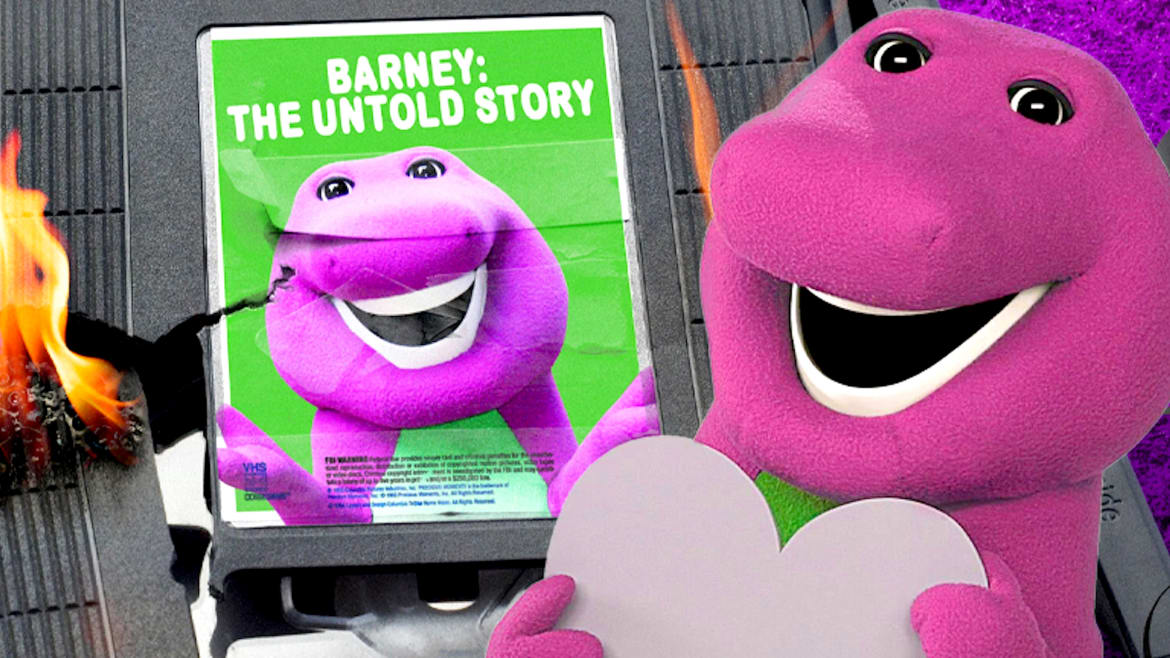Peacock
Hating on Barney was, and remains, quite easy, and in I Love You, You Hate Me—a new two-part Peacock docuseries (Oct. 12) about the famed purple dinosaur—it’s Blue’s Clues host Steve Burns who aptly diagnoses our impulse to loathe the character. As he sees it, humans take instinctive pleasure in tearing down things that are irrepressibly happy, and in this case, that was exacerbated by the fact that Barney—unlike, say, the inhabitants of Sesame Street—was perpetually and preternaturally cheery, wholesome, and upbeat. Rather than struggling with complicated emotions, Barney was a big plushy figure of radiant sunshine who imagined a world in which love and acceptance were everywhere, and family was a unit upon which you could always count. Those lessons resonated deeply with young, impressionable kids. For cynical grown-ups living in the real world, however, they were so much unbearable saccharine mush.
Directed by Tommy Avallone, I Love You, You Hate Me will not make you feel bad about being driven mad by Barney, but it does cast such feelings in their proper context—and, consequently, makes the real “Barney Bashers” look more than a tad pathetic. Video of a 1990s University of Nebraska event in which college guys smashed dolls and staged a fight in which Barney was beaten up by Big Bird (the organizer’s own childhood favorite) is to witness fragile masculinity at its finest, and lends credence to the notion that part of what made Barney off-putting was that he represented a softness that was at odds with the decade’s aggro machismo. It’s only a small step from there to theorize that Barney—a giant, cuddly purple creature who preached tolerance and affection—was threatening because he seemed gay, although as in most other instances, the docuseries floats this idea but doesn’t actually investigate it in an in-depth way.
I Love You, You Hate Me features interviews with a wide array of men and women who were associated with Barney & Friends, the preschool TV sensation that ran from 1992-2010, but the two people who are most discussed and yet conspicuously missing are creator Sheryl Leach and her son Patrick. Inspired to create entertainment that would appeal to her then-2-year-old son, Sheryl dreamed up Barney, who quickly became a VHS—and then a PBS—smash. In the 1990s and 2000s, Barney was a ubiquitous presence known for his goofy voice (handled by Bob West), jubilant body language (via performer David Joyner), and feel-good messages. Numerous individuals recount their experiences with the program, including some of its adolescent stars (Pia Hamilton, Leah Montes, Hope Cervantes, Rickey Carter) as well as lifelong superfan Andrew Olsen, who narrates a lot of Sheryl’s story in her absence, and whose comments about the normality of continuing to love Barney as an adult will likely strike some as unconvincing at best, and strange at worst.

